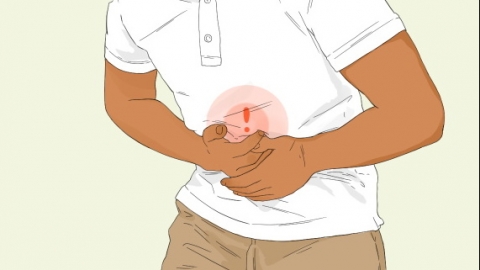Will a stomach bleed heal on its own?
Generally speaking, whether gastrointestinal bleeding can heal on its own depends on the underlying cause, volume of bleeding, and the extent of gastric mucosal damage. If the bleeding results from minor mucosal injury and the blood loss is minimal, it may resolve spontaneously. However, if it is caused by severe diseases, involves substantial blood loss, or extensive mucosal damage, it typically will not heal without medical intervention. Detailed analysis is as follows:

If gastrointestinal bleeding is caused by mild acute gastric mucosal injury and the bleeding volume is very small, the gastric mucosa may gradually recover through its natural repair mechanisms after the irritants are removed, and the bleeding may stop spontaneously. In such cases, patients may only experience brief gastric discomfort or pass small amounts of black stool without other significant symptoms.
When gastrointestinal bleeding is caused by severe conditions such as peptic ulcer, ruptured esophageal or gastric varices, or gastric cancer, or when the bleeding volume is large, the gastric mucosal damage is usually extensive and beyond the body's capacity for self-repair, making spontaneous healing unlikely. Patients may experience persistent hematemesis (vomiting of blood), passage of large amounts of black stool, palpitations, dizziness, and other symptoms. Without timely treatment, excessive blood loss may lead to more serious health complications, even life-threatening conditions.
To promote gastric health and reduce the risk of gastrointestinal bleeding, it is recommended to maintain regular eating habits, avoid long-term heavy alcohol consumption, refrain from misuse of nonsteroidal anti-inflammatory drugs (NSAIDs), and minimize irritation to the gastric mucosa.






